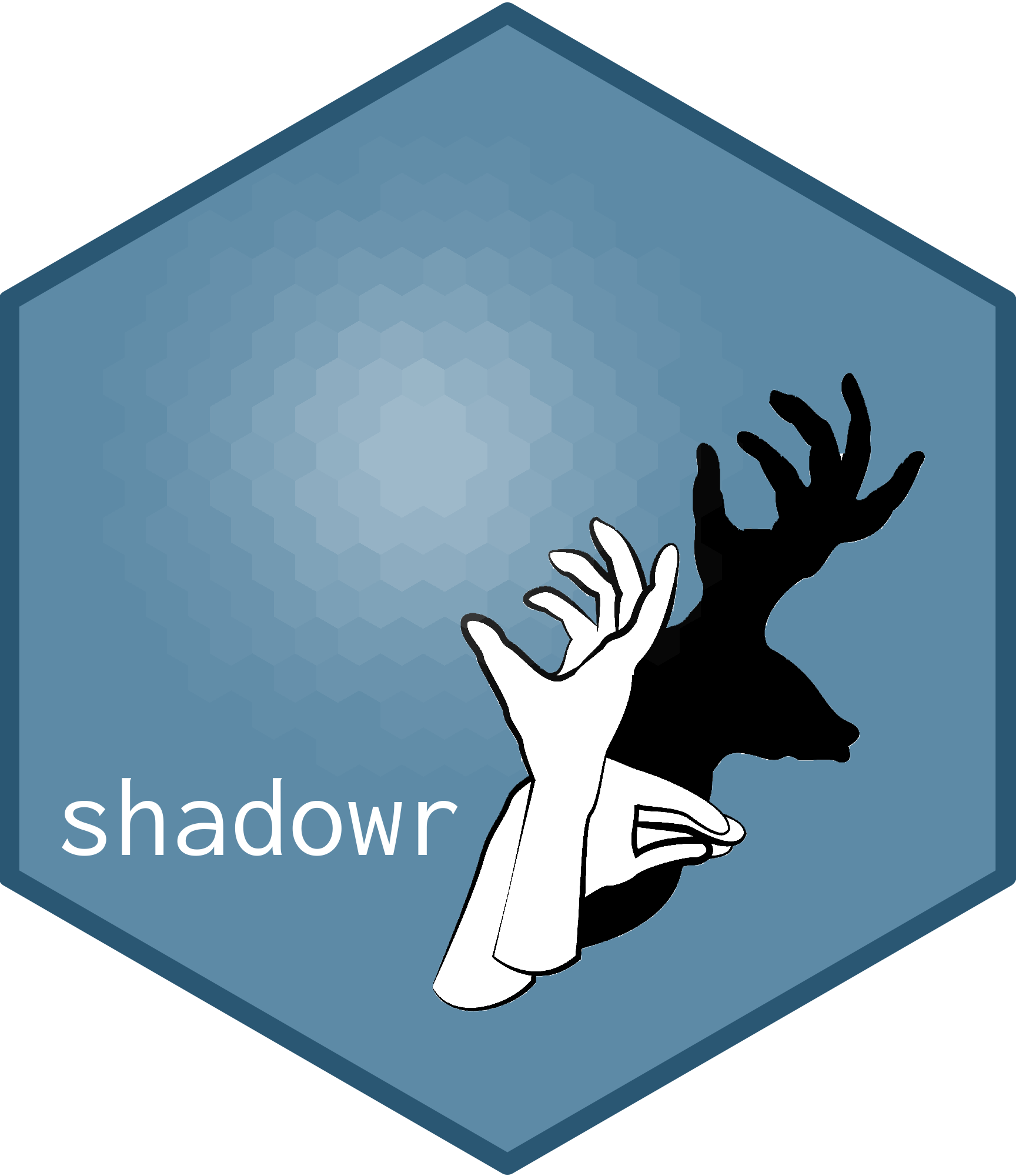Selenium Plugin to Manage Multi Level Shadow Elements on Web Page.
shadowr 
Overview:
The shadowr package enables to use the shadow selenium plugin to manage multi level shadow DOM elements on web page.
Shadow DOM is a web standard that offers component style and markup encapsulation. It is a critically important piece of the Web Components story as it ensures that a component will work in any environment even if other CSS or JavaScript is at play on the page.
Custom HTML Tags:
Custom HTML tags can't be directly identified with selenium tools. Using this plugin you can handle any custom HTML tags.
Problem Statement:
- You have already developed your web-based automation framework in java selenium. Your frontend application uses Polymer that uses shadow dom. Selenium doesn't provide any way to deal with shadow-dom elements.
- Your application page contains custom HTML tags that can't be identified directly using selenium.
Solution:
You can use this plugin by adding jar file or by including maven dependency in your java selenium project.
How it works:
Methods:
Depending on the method, either a RSelenium::WebElement or a boolean is returned. You can access the RSelenium::WebElement like you used to.
find_element(shadowObject, css_selector): Use this method if want single element from DOM
find_element(shadowObject, element, css_selector): Use this if you want to find a single elements from parent object
find_elements(shadowObject, css_selector): Use this if you want to find all elements from DOM
find_elements(shadowObject, element, css_selector): Use this if you want to find all elements from parent object
get_shadow_element(shadowObject, element,css_selector): Use this if you want to find a single element from parent DOM
get_all_shadow_element(shadowObject, element, css_selector): Use this if you want to find all elements from parent DOM
get_parent_element(shadowObject, element): Use this to get the parent element if web element
get_sibling_element(shadowObject, element, css_selector): Use this to get adjacent(sibling) element using css selector
get_previous_sibling_element(shadowObject, element): Use this to get previous adjacent(sibling) element
get_next_sibling_element(shadowObject, element): Use this to get next adjacent(sibling) element
scroll_to(shadowObject, element): Use this to scroll to web element
is_checked(shadowObject, element): Use this if you want to check if checkbox is selected
is_disabled(shadowObject, element): Use this if you want to check if element is disabled
is_visible(shadowObject, element): Use this if you want to find visibility of element
Installation
install.packages("shadowr")
Selector:
Examples:
for html tag <paper-tab title="Settings"> You can use this code in your framework to grab the paper-tab element Object.
library(shadowr)
library(RSelenium)
remDr <- RSelenium::remoteDriver(
remoteServerAddr = "host.docker.internal",
port = 4445 , browser = "chrome")
remDr$open(silent = TRUE)
remDr$navigate(url)
shadow_rd <- shadow(remDr)
element <- find_element(shadow_rd, 'paper-tab[title="Settings"]')
elements <- find_elements(shadow_rd, 'paper-tab[title="Settings"]')
element$getElementText()
for html tag that resides under a shadow-root dom element <input title="The name of the employee"> You can use this code in your framework to grab the paper-tab element Object.
library(shadowr)
library(RSelenium)
remDr <- RSelenium::remoteDriver(
remoteServerAddr = "host.docker.internal",
port = 4445 , browser = "chrome")
remDr$open(silent = TRUE)
remDr$navigate(url)
shadow_rd <- shadow(remDr)
element <- find_element(shadow_rd, 'input[title="The name of the employee"]')
elements <- find_elements(shadow_rd, 'input[title="The name of the employee"]')
element$getElementText()
for html tag that resides under a shadow-root dom element
<properties-page id="settingsPage">
<textarea id="textarea">
</properties-page>
You can use this code in your framework to grab the textarea element Object.
library(shadowr)
library(RSelenium)
remDr <- RSelenium::remoteDriver(
remoteServerAddr = "host.docker.internal",
port = 4445 , browser = "chrome")
remDr$open(silent = TRUE)
remDr$navigate(url)
shadow_rd <- shadow(remDr)
element <- find_element(shadow_rd, "properties-page#settingsPage>textarea#textarea")
element$getElementText()
Note: > is used to combine multi level dom structure. So you can combine 5 levels of dom. If you want some more level modify the script and ready to rock.
DocumentationLink.
